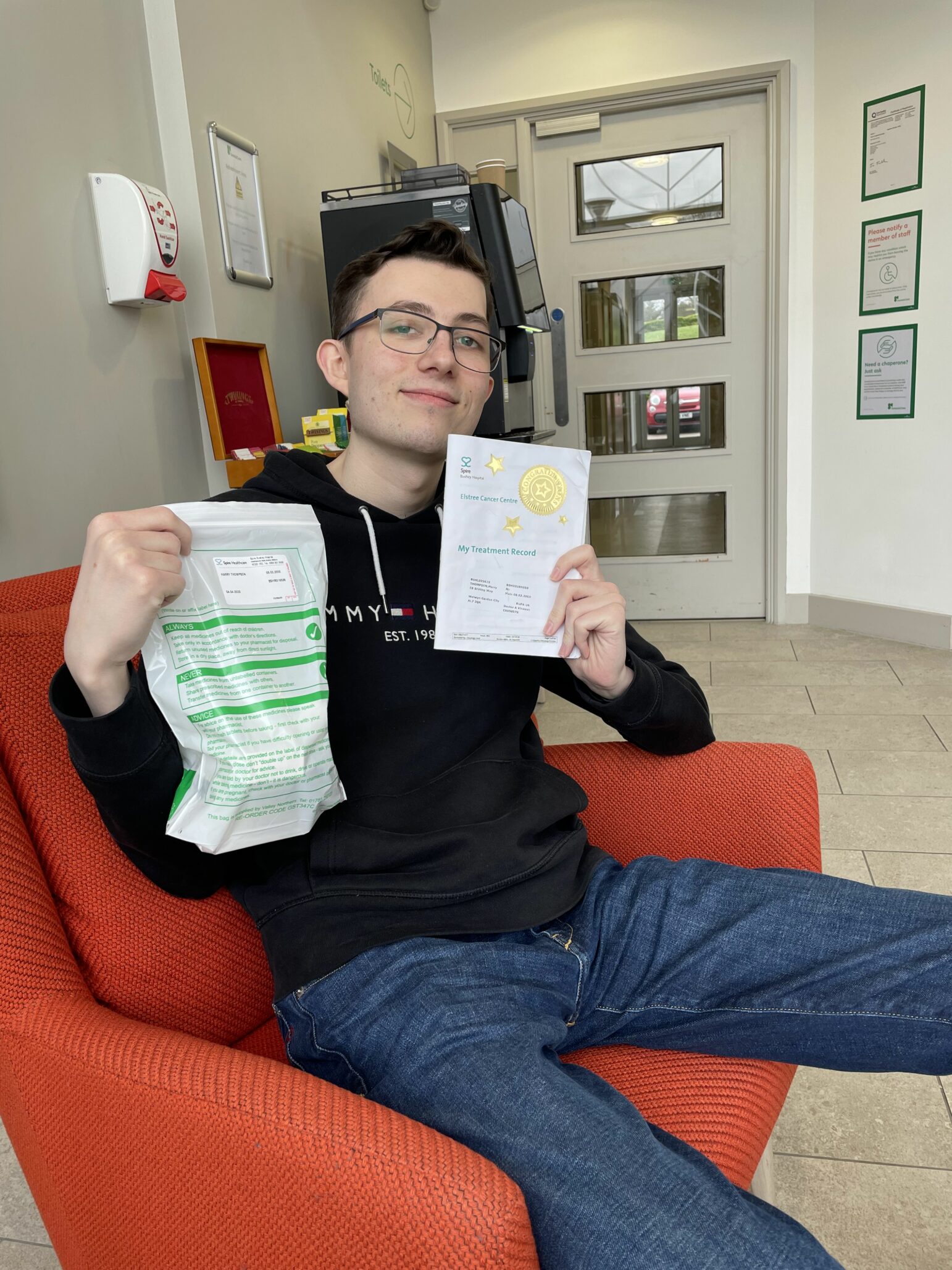An IT worker from Hertfordshire is sharing his story this National Eye Health Week (18 – 24 September) after an eye test at an optician’s led to his brain tumour diagnosis.
Harry Thompson, 22, from St. Albans started getting headaches and vision problems in 2021, and noticed he was having to squint to read his notes or use his PlayStation.
Within six weeks he’d been diagnosed with a brain tumour – an anaplastic astrocytoma – and was having surgery followed by radiotherapy and chemotherapy.
Optician recommended hospital visit after eye test
“I wondered if I needed glasses,” Harry explained, “so I did the obvious and went to get an eye test. They noticed massive swelling behind my eyes so suggested I get checked out. I went to my nearest hospital where they recommended that I get an MRI scan. I didn’t think anything more of it really and then, later, thought I’d better find a phone number to get the results.
“When I rang, they told me ‘You’re on the high priority list. It’s going to be a 12 to 14-week wait to see a specialist.’ And I thought that’s quite a long time, I don’t think I want to wait that long. Fortunately, through work I get private healthcare, so I met with a neurologist quite quickly. I described my headaches and loss of vision, and then he did some tests and found that on my right side I had lost my peripheral vision. I hadn’t realised until that moment.”
Vision and brain tumours – fast facts
- Headaches, blurry vision and double vision are some of the hallmark symptoms that can be associated with a brain tumour
- For some people, these symptoms are normal. But if they don’t disappear, get them checked out.
- One in three patients report a problem with their vision because of a brain tumour or its treatment.
- 39% of children diagnosed with a brain tumour experience sight or vision changes
- Many employers pay for eye examinations, which are free of charge for children under 16 in full time education.

Undergoing treatment
Harry had gruelling treatment over several months but was able to keep a positive outlook through those he met who were either caring for him or going through a similar experience.
He also looked up The Brain Tumour Charity online and found its Facebook Support Group and website information invaluable. He is now raising funds for The Charity through a Big Bake fundraiser and a horse racing night.
Harry now has regular MRI check-ups and says: “I will always have the brain tumour. It will always be a part of me. The key word at the moment is stable, so I treat every day as a bonus! I want to help others around my age going through a similar thing.”
Lorcan Butler, an optometrist and dispensing optician who works as the Optical Engagement Manager at The Brain Tumour Charity, has delivered training and advice to 4,092 eye specialists between 2022 and 2023.
He said: “We are hugely grateful to Harry for sharing his experience this National Eye Health Week. Several health conditions, including brain tumours, can be detected during a routine eye examination. If you, or a loved one, have any concerns about your vision please do not hesitate to contact your local optician to get reassurance and support.”
Find out more about eye tests
Some brain tumours can be detected through an eye test. So, it’s worth making regular appointments, especially if you’re having any problems with your vision.
For more information on eye tests, click the link below:
